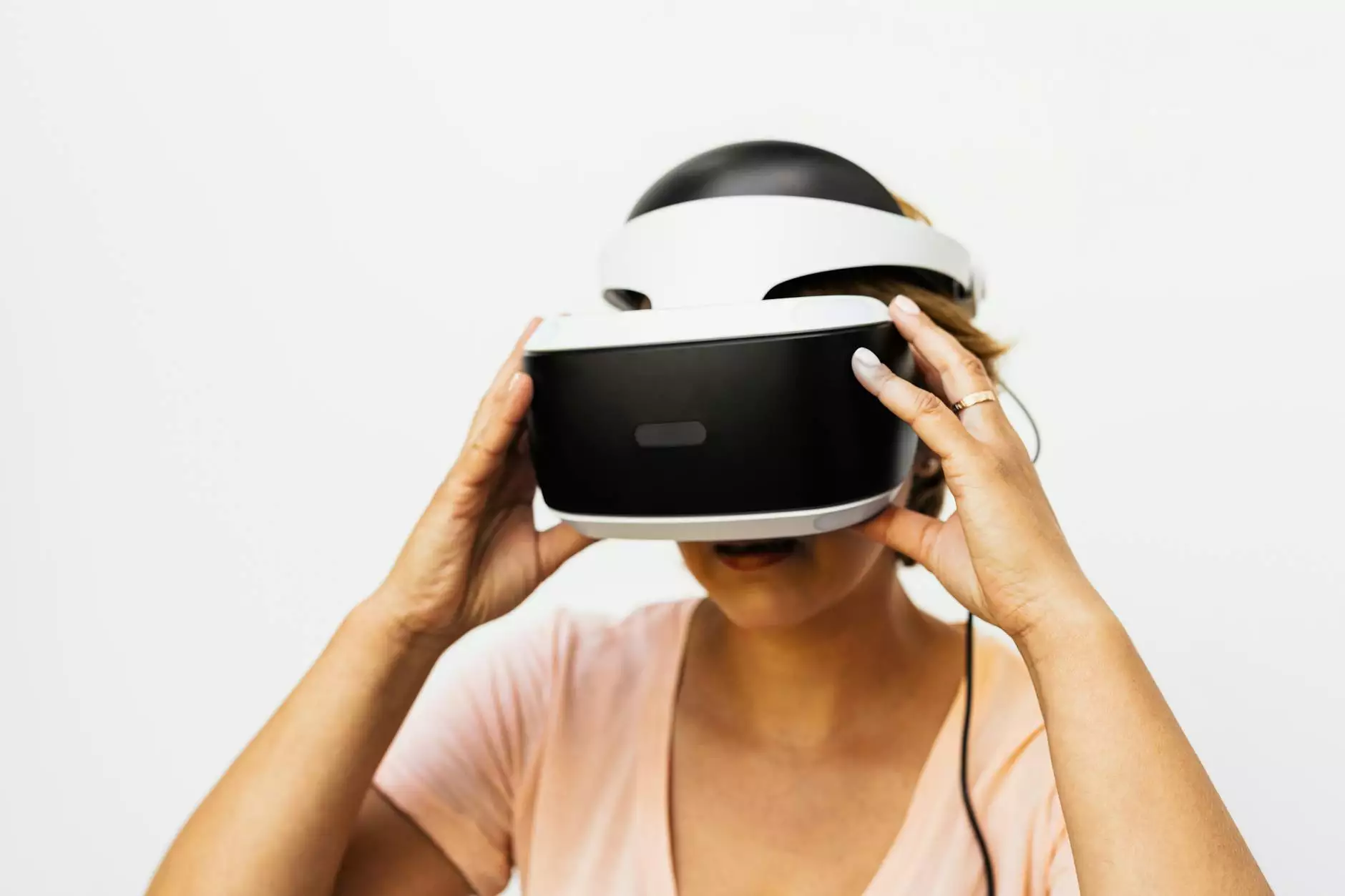Innovative Virtual Reality Business Ideas to Transform Your Career

The advent of virtual reality (VR) has undoubtedly revolutionized various sectors, and the business landscape is no exception. As VR technology continues to evolve, it presents an array of opportunities for entrepreneurs eager to carve a niche in this expansive market. In this article, we will explore an exhaustive list of virtual reality business ideas that can help you thrive in this exciting domain. From education to immersive experiences at virtual reality centers, the possibilities are endless.
Why Invest in Virtual Reality?
Virtual reality technology is not just a futuristic concept; it is a rapidly growing industry with a profound impact on various business sectors. Here are several compelling reasons to consider investing in virtual reality business ideas:
- Market Growth: The global VR market is projected to expand at a remarkable rate, reaching nearly $600 billion by 2025.
- Diverse Applications: VR can be applied in numerous fields, including healthcare, education, entertainment, real estate, and more.
- Consumer Demand: As technology penetration increases, consumer demand for VR experiences is surging.
- Enhanced Learning and Training: VR has been shown to improve retention and engagement in educational settings.
1. Virtual Reality Education Platforms
The education sector stands to gain enormously from virtual reality. By creating immersive learning environments, you can open up new avenues for educational institutions and students alike. Here are some ideas:
- VR Workshops and Classes: Develop workshops that utilize VR technology to teach complex subjects, such as physics or history, making learning more engaging.
- Interactive VR Courses: Create a platform that offers courses where students can interact with 3D models, enhancing their understanding of the subject matter.
- Virtual Field Trips: Offer VR experiences that allow students to visit historical sites or natural wonders without leaving the classroom.
- Corporate Training Solutions: Build VR training modules for companies, enabling employees to practice skills in controlled environments.
2. VR-Based Therapy and Rehabilitation
Healthcare is another promising field for virtual reality business ideas. VR can aid in therapy and rehabilitation in innovative ways:
- Pain Management Therapy: Create VR experiences designed to distract patients during painful procedures or to help manage chronic pain.
- Exposure Therapy: Develop applications that help patients with phobias face their fears in a safe environment.
- Rehabilitation Programs: Design VR exercises for physical therapy patients to encourage movement and track recovery progress.
3. Immersive Virtual Reality Centers
Establishing a virtual reality center can be a lucrative venture. These centers can cater to individuals looking for unique entertainment experiences:
- VR Gaming Arcade: Create an arcade with cutting-edge VR gaming equipment where patrons can enjoy state-of-the-art gaming experiences.
- Escape Rooms: Design VR-themed escape rooms that provide more immersive and elaborate puzzles through virtual environments.
- Training Simulators: Offer businesses the chance to use your VR center for training employees in a realistic setting.
4. Virtual Reality Content Creation
The demand for high-quality VR content is on the rise. Here’s how you can capitalize on this demand:
- 3D Modeling and Animation Services: Offer services to create 3D assets for businesses looking to enter the VR space.
- VR Film Production: Produce immersive films and experiences that transport viewers to another world.
- Virtual Reality Advertising: Develop unique advertising campaigns that utilize VR technologies to engage potential customers in novel ways.
5. Virtual Tours and Experiences
With the growth of online media consumption, virtual tours represent an effective way to attract viewers:
- Real Estate Virtual Tours: Create immersive 3D tours for real estate agents to showcase properties to potential buyers remotely.
- Travel Industry Applications: Offer virtual travel experiences, allowing users to explore destinations before making travel plans.
- Museum and Gallery Tours: Collaborate with museums to create virtual walkthroughs that attract visitors and enhance cultural appreciation.
6. VR in Marketing and Brand Engagement
Marketing is evolving, and businesses need to adapt. VR can be a powerful tool:
- Product Demonstration Experiences: Develop VR applications that allow customers to interact with products before purchase.
- Immersive Brand Campaigns: Create unique brand experiences that engage customers and foster brand loyalty.
- Event Marketing: Use VR to simulate experiences at trade shows or events where potential clients can engage with the brand.
7. Collaborations with Local Businesses
Partnering with other businesses can enhance your reach in the VR space:
- Local Museums and Historical Sites: Collaborate to create augmented reality experiences that educate visitors.
- Educational Institutions: Partner with schools to provide custom VR training solutions.
- Fitness Centers: Develop VR fitness programs that can bring a unique twist to gym workouts.
8. Research and Development Projects
Investing in R&D can position your business as a frontier of innovation in VR:
- Gesture Recognition Technologies: Explore advancements in VR that allow for more natural interactions.
- Integration with AI: Develop AI-driven VR systems that adapt to user preferences and behaviors.
- Healthcare Innovations: Research ways to integrate VR with existing medical practices to enhance treatment efficacy.
9. The Future of Virtual Reality Businesses
As technology continues to advance, the future of virtual reality will undoubtedly bring forth even more opportunities:
- Personalization: With AI advancements, expect highly personalized VR experiences that cater specifically to users' preferences.
- Social VR:* The growth of social platforms in VR will allow people to connect in virtual spaces, leading to new business opportunities.
- Affordable Equipment: As VR equipment becomes more affordable, accessibility will expand, increasing consumer engagement.
Conclusion
The world of virtual reality business ideas is vast and filled with potential. With the right approach, dedication, and a clear vision, you can navigate this dynamic industry and create a successful business. Whether you decide to focus on education, entertainment, healthcare, or marketing, VR offers the tools to innovate and inspire. Start exploring these ideas today, and you could be at the forefront of the next big breakthrough in virtual reality.
For more insights and guidance on virtual reality business ideas and to see how you can make the most of this burgeoning market, visit rotstudio.com.







